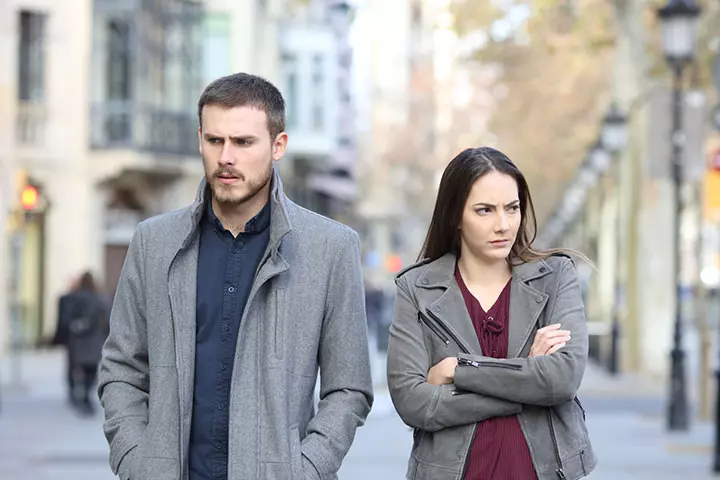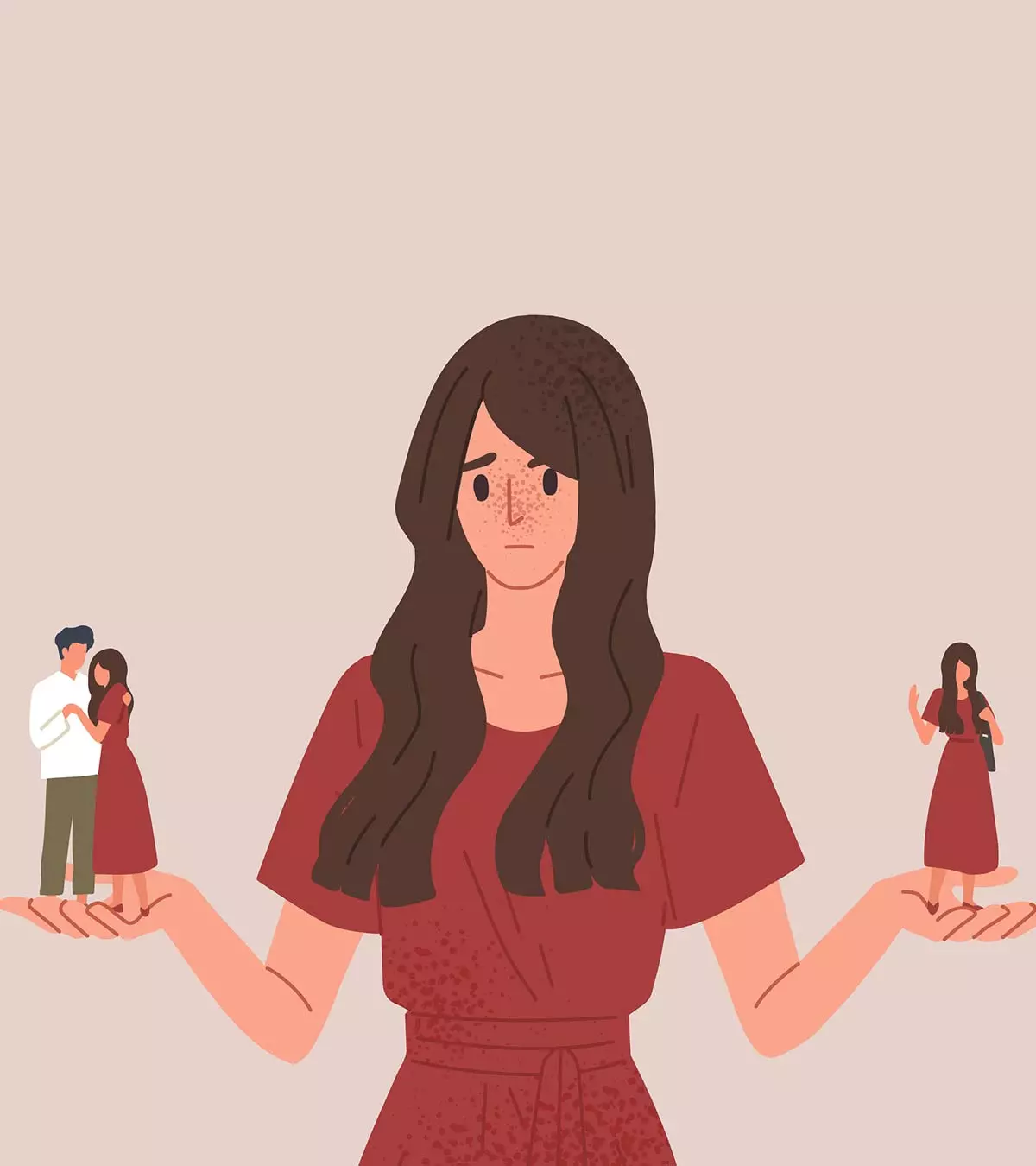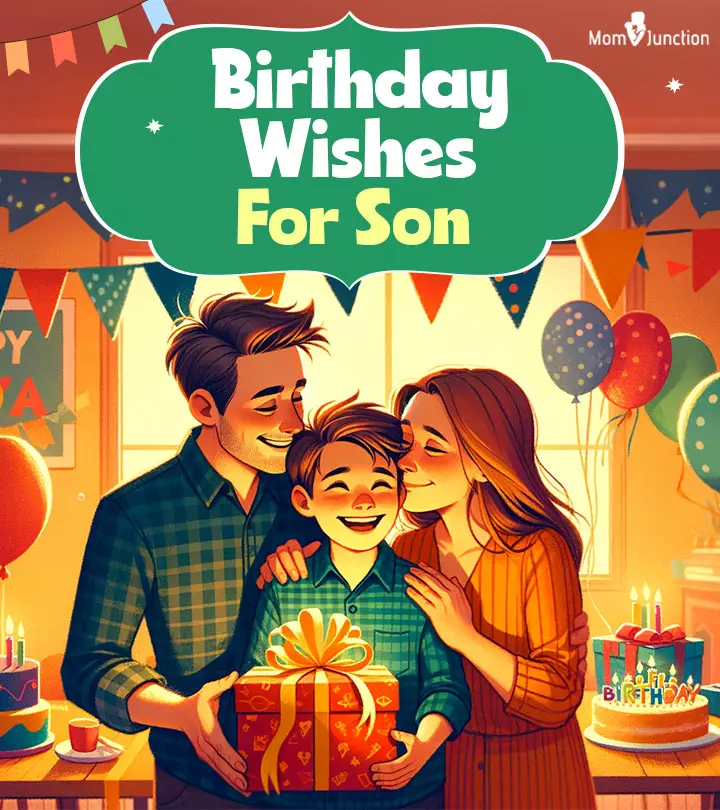
Image: iStock
Many partners experience a love-hate relationship and wonder what they could do to improve the situation. Well, relationships are complicated, and everyone expresses emotions in different ways. You and your partner may be full of love and excitement at one point and become rivals at other times. Initially, you might not think much about this understanding and remain okay with the pattern. However, as the relationship grows and feelings of love and hate start becoming complicated, you might begin to worry about getting overwhelmed by the negative feelings. Affection might go out of the window and be replaced with animosity and enmity. You might also wonder if it was the right decision to get into the relationship. This post shares with you the details of a love-hate relationship, why it happens, and tips to manage it.

Key Pointers
- Love-hate relationships are a roller coaster ride of make-ups and break-ups.
- Compatibility issues or other insecurities may be responsible for such a relationship.
- Keeping your ego aside, thinking clearly, and focusing on the positives can help to form a strong bond.
What Is A Love-Hate Relationship?
A love-hate relationship is one where both the partners have strong feelings for each other but are not consistent in expressing them. So they behave lovingly on some occasions and act like enemies on others.
Couples in a love-hate relationship tend to speak harsh words that they do not mean. On some occasions, they cannot stand each other and might want to end the relationship but do not end it. According to a study published in Frontiers in Psychology, “…people who shared similar values and interests with the target persons were more likely to experience stronger love. Additionally, stronger feelings of love were associated with greater hate after the relationship was broken, suggesting a link between romantic love and hate (1).” This complicated feeling might stop you from ending your relationship as you know you will still love or hate the person but cannot forget them.
Besides the apparent inconsistency in their emotions, certain other signs suggest yours is a love-hate relationship.
Signs Of A Love-Hate Relationship
A love-hate relationship is one where you cannot live without each other but also cannot stand each other. If you and your partner are see-sawing through extreme emotions, look out for these other behaviors or signs that suggest the nature of the relationship.
1. Sometimes you feel they are a blessing in your life
Extreme emotions define love-hate relationships. At times, you feel like the luckiest person in the whole world because of certain appealing qualities in them. You may love that your partner is dynamic, focused in life, always helpful, and makes you a priority. No matter how much you try, you find certain qualities in your partner irresistible.
2. Sometimes you just can’t stand them

A few traits can be an absolute turn-off, and you cannot help loathing them. It could be their ego, short temper, or streaks of laziness. These habits or traits may not be deal-breakers but tend to cause friction and tension every now and then. At times like these, you will feel that you are not happy in the relationship and made a mistake by committing to your partner.
3. You makeup and break up again and again

In a love-hate relationship, you love and hate each other with passion. When you both argue, it would be intense and can lead to name-calling and threats of breaking up. During such heated moments, you may find each other highly repulsive. You are filled with disgust by their proximity, which can lead to estrangement.
But even as you think about calling it quits, you may change your heart and makeup, shower each other with love and forget that you were at each other’s throats just a while ago. But this love is also short-lived, as the cycle of breaking up and making up goes on.
 Did you know?
Did you know?4. You take the relationship as a challenge
Initially, you may have been attracted to the positives in your partner (and still do). But when the negatives caught up, you were hit by antipathy and wanted to end the relationship. However, the positives are too good to let go, or you have invested too much time and effort to walk away without trying one more time. So, you start maintaining the relationship as a prized possession, with the motive of winning them over. You may try to make them stay committed to you permanently or give in to your needs and desires.
5. You have no idea where the relationship is heading

You see other couples going ahead in the relationship, supporting and understanding each other, but you are stuck in the vicious cycle of loving and hating.
With all the mixed emotions and roller coaster rides, you just cannot figure out what the future of the relationship is. Maybe you got comfortable in the relationship or are afraid of being single, and continue being with them.
6. You have no healthy emotional connection
While you adore certain traits in your partner, you do not love them enough to accept their flaws. This prevents both of you from having an emotional connection, which creates discord and directly impacts the longevity of the relationship.
You could be chasing perfection and trying to fit your partner into your mental image of the perfect guy or girl. Whenever they do something amazing, your heart fills with love for them. And the moment they go against your will, you are filled with aversion for them. Your bitterness or love for them becomes conditional and depends on how they make you feel.
7. You both have emotional baggage
Lack of an emotional connection could lead to constant fights and conflicts. At one point, you would no longer discuss the issues and may start to sweep them under the rug. You may even hold a grudge against them.
Say, you are angry at your spouse for not doing the dishes. Instead of addressing that single issue, you use that to bring out all the previously unresolved issues. Such built-up anger will lead to hatred, resentment, and disagreement, which is like a ticking time bomb ready to explode at the slightest disturbance. And when it does, the lack of an appropriate emotional connection will make matters worse.
8. The things you dislike in your partner keep bothering you
As mentioned earlier, there may be some things about your partner that you cannot stand. So, even if you feel incredibly drawn towards them, the aspects that you dislike in them nag you. This causes ill will and makes it difficult for you to love them or hate them completely.
You may have tried to talk to your partner about the things that are bothering you, but there is no change, and eventually, you come to a conclusion that they will never change. This will leave you frustrated as you cannot decide whether to stay for the good things or leave for the bad things.
9. You talk less to each other and more about each other
When you are not sure about your partner, and talking to them is taking you nowhere, you try to calm down the voices in your head by taking the relationship issues to your friends and family.
You may feel that they see things differently, or they might know how to fix your relationship. You will have an impulsive need to share your feelings with your friends for support and validation. You know it might hurt or anger your partner, but you cannot help as the doubts inside your head do not let you stay still.
10. You try to play safe
A healthy relationship is one where you can be yourself, love without boundaries, and accept each other without any reservations. But in a love-hate relationship, you are sometimes in and sometimes out.
Such half-hearted emotions will make you protective of yourself. Fearing rejection and hurt, you try to play safe. You start building scenarios in your head as to how you can come out clean from the relationship. You try to focus more on the qualities which you hate and push your partner aside.
If you could relate to most of the behaviors mentioned above, then you could be in a love-hate relationship. And you may wonder how you and your partner landed yourselves in this situation.?
Why Do Couples Have A Love-Hate Relationship?

You and your partner did not get into this vortex of love and hate overnight. This situation is a result of many small things, and here are some of them.
- Ego: Ego and love cannot be together. If you and your partner have giant egos that are overshadowing your love, then you will have difficulty accepting your faults. And when your partner tries to point it out, you may take it negatively.
- Compatibility issues: Things can also go wrong when your views and expectations of love, life, goals, and dreams do not match. You may try to do stuff out of spite, which can compel your partner to dislike you even more.
- Unbent personalities: If both the partners have strong personal opinions and views and are not ready to let go of them or even bend them a little for the sake of being together, then the love can turn into hatred in no time.
- Control issues: Another downside of having a strong personality is the urge to control. If both you and your partner are always fighting over who holds the reins of the relationship, then there is only war and no love.
- Cheating, jealousy, and insecurity: Such negative traits also push a relationship into a love-hate cycle. If you encounter these issues and ignore them instead of addressing them, they could build up hate and resentment in you.
- Try to perfect others but not oneself: When you always find faults and want your partner to be perfect but ignore your own flaws, you inevitably create a love-hate situation and add to the acrimony in the relationship.
- Mental issues: Sometimes, having a mental condition may not allow you to connect properly with your partner, and they might view it as neglect. A blogger who writes under the name of Three Track Mind mentions how ADD has played a huge role in their relationships. In a blog titled ‘Love and Hate and ADD,’ he writes, “All my relationships are love/hate relationships…For one thing, sometimes it can be difficult to follow my train of thought. I’ll be talking to you about the weather in Florida and, given the briefest of interludes, my mind will wander. And when my mind emerges a moment later, I’m talking about how great Robin Williams was and how devastating depression is. The incoherence leaves some people confused and frustrated. But I’m oblivious in the moment, captive to the whims of my mind (i).”
When you identify the cause of all those intense but wavering emotions, you can work on fixing them before the relationship moves towards a breakup. Next, we give you a few tips on how to do that.
Ways To Deal With A Love-Hate Relationship

- Clear out your thoughts: The primary issue in a love-hate relationship is indecisiveness. You cannot keep on questioning your position in the relationship and expect things to turn out great. To guide your relationship out of this frustrating phase, both you and your partner must first be clear if you want to continue or let go of the relationship.
Unless you are in an abusive or toxic relationship, a love-hate relationship could just be a phase. With the right effort, you can steer it on to the path of happiness.
 Quick tip
Quick tip- Identify the negative feelings: The next step is to identify the negative emotions that are causing friction. These could be your lack of patience or your partner’s temper, which are making you both bitter.
So the next time you are on the verge of giving in to detestation and lashing out at your partner, stop and think for a moment. If you are not able to control your anger, then do not react. Take your time and rethink the scenario with a calm head.
- Emphasize the positives: Everybody has flaws, and it is completely okay. The sooner you accept this, the better it is because once you accept the person for who they are, you will find yourself liberated from the negative thoughts and nagging questions.
Once the negative thoughts are flushed out, you will be able to see each other’s positives that make the relationship stable to achieve happiness, become more confident about yourself and the relationship, and start trusting your partner. However, this may not be true if one of the partners has narcissistic behavior or is a threat to you and your kids.
- Spend more time with each other: This could look like a simple step, but when a couple is in a love-hate relationship, being able to tolerate each other and have a cheerful conversation without fights could be a miracle.
There will still be fights and difficult times. Spend as much time together as possible, go on dates, do things that both of you can enjoy. This will help build the friendship between you two. Also, when you find that you’re facing an impasse, discuss like mature adults instead of brushing it off. You will be surprised to see how easily an issue could be solved.
- Know what to let go: There is a reason why you were not able to let go of your partner, even though you hate them (sometimes). Find that reason, think about it, and if you feel your negative emotions such as ego, controlling behavior, and adamant nature are not bigger than the relationship, then let go of them without any second thoughts.
- Seek help: If the relationship challenges feel insurmountable, consider seeking guidance from a couples therapist who can help you work out your issues. They can offer a neutral third-person perspective on your behavior and relationship and help you analyze your situation clearly. You could also talk to close friends or family members who can advise you without bias.
Frequently Asked Questions
1. Is a love-hate relationship healthy?
Love and hate are not synonymous and refer to two entirely different emotions. However, love is not always a happy experience, conflicts, arguments, and even boredom will occur. If you love someone deeply, having feelings of hostility, anger, or hatred does not fit well. Hence, a love-hate relationship may not seem healthy. If, on the other hand, love is reciprocated in equal or greater quantities than hate, and couples find strategies to deal with difficulties without jeopardizing their relationship, a healthy equation may emerge.
2. When does love turn to hate in a relationship?
When a partner’s presence or absence no longer makes a difference, feelings of relief are felt when they are not around, flaws appear to be crimes, and there is a lack of trust, love turns to hatred.
3. Is there a word for a love-hate relationship?
In the context of relationships, an ambivalent relationship often involves experiencing both love and hate or strong positive and negative emotions towards the same person.
4. What is the opposite of a love-hate relationship?
A “healthy relationship” or “balanced relationship” is often used to describe the opposite of a love-hate relationship. The partners have emotional stability, trust, respect, and care without intense ambivalence or contradictory feelings.
5. Is hate the strongest form of love?
No, hate is not considered the most potent form of love. Love and hate are separate and distinct emotions. While they can both be intense and powerful, they stem from different emotional states.
6. Can therapy or counseling help with a love-hate relationship, and if so, what kind of therapy is best?
Therapy or counseling may benefit individuals experiencing a love-hate relationship. The right type of therapy depends on the specific individual circumstances, underlying issues, and dynamics within the relationship.
7. What are some ways to heal after a love-hate relationship?
Take time for self-reflection to understand your experiences, emotions, and needs. Prioritize self-care activities that promote well-being and contact trusted friends, family members, or a support group to share your feelings and experiences. Talking about your emotions can provide comfort and perspective. Consider seeking the support of a therapist or counselor who can offer guidance and help you navigate the healing process.
8. How can I avoid falling into a love-hate relationship in the first place?
Recognizing red flags and early warning signs of unhealthy dynamics in a relationship could be the first step. Further, you must prioritize open communication, foster mutual respect and equality, and set healthy boundaries to provide a sense of safety and autonomy.
9. Is it possible to have a love-hate relationship with a family member or friend, or is it limited to romantic relationships?
Having a love-hate relationship with friends or family is possible. Any close and emotionally meaningful relationship with a complex interplay of emotions, opposing feelings, and a long connection history may develop love-hate dynamics.
10. What does emotionally ambivalent mean?
Emotional ambivalence is an intricate emotional state. It is characterized by nervousness and internal conflict when an individual undergoes both positive and negative emotions concurrently (2).
11. What is dysfunctional love?
Dysfunctional love is a type of romantic relationship marked by an inability to maintain positive emotional well-being for those involved. In dysfunctional love, there can be a lack of communication, trust, intimacy, and mutual respect. The relationship is marred by high levels of resentment, abusive behavior, dominance and submission. Dysfunctional love takes a toll on the emotional well-being of the partners and does more harm than good.
It might not be pleasant to be in a love-hate relationship. However, if you successfully navigate this phase, you will have created a strong and healthy bond with your partner that can propel your relationship to new heights. So, don’t sacrifice your love in haste. Be patient and see what you can come up with. However, if the relationship is toxic and abusive, and your spouse takes advantage of your kind nature, you should end it. Giving up the wrong things for the right reasons is always a good idea. You may also like to explore these love-hate quotes to get a better understanding of your situation and find comfort.
Infographic: Things To Note About A Love-Hate Relationship
A love-hate relationship can be confusing even to the couples involved in it. Sometimes you cannot contain the immense love for your partner, while other times, you wish to shut off and never talk to them again. If you feel something similar, this infographic can help you get a perspective and find ways to deal with it.
Some thing wrong with infographic shortcode. please verify shortcode syntax
Illustration: Signs You are in a Love-hate Relationship and How to Deal With It

Image: Dall·E/MomJunction Design Team
Explore this illuminating video to learn about ten compelling signs that you may be in a love-hate relationship.
Personal Experience: Source
MomJunction articles include first-hand experiences to provide you with better insights through real-life narratives. Here are the sources of personal accounts referenced in this article.
i. Love and Hate and ADD;
https://medium.com/@threetrackmind79/my-love-hate-relationships-f264115f7f03
References
- Wang Jin et al.; (2017); The Deeper the Love the Deeper the Hate.
https://pmc.ncbi.nlm.nih.gov/articles/PMC5725944/ - The value of emotional ambivalence.
https://www2.lehigh.edu/news/the-value-of-emotional-ambivalence
Community Experiences
Join the conversation and become a part of our nurturing community! Share your stories, experiences, and insights to connect with fellow parents.
Read full bio of Dr. Carlos Juan Carmona-Goyena
Read full bio of sanjana lagudu
Read full bio of Shikha Thakur
Read full bio of Benidamika J Latam
















